Cocklebur
- Composite or aster (Asteraceae family):
- Xanthium strumarium L.
- EPPO code:
- XANST
- Other names:
- Bur, clotbur
Species information
- Lifecycle:
- Annual.
- Propagation:
- Reproduces by seed.
- Emergence:
- Seed germinates in early spring and into summer.
- Habitat:
- Cocklebur is most commonly found in cultivated fields in southwestern Ontario, but it can also be found in central and eastern Ontario, although mainly in areas close to lake Ontario.
- Competitiveness:
- Cocklebur is considered a very strong competitor. Yield losses above 50% have been observed in cereals, soybeans and field corn in Ontario.
Identification clues
Seedling
- Cotyledons:
- Long, narrow and smooth.
- Young leaves:
- The first leaves on a seedling plant are opposite and triangular shaped; subsequent leaves are alternate. The leaf surface is rough to the touch, not unlike sandpaper.
- Mature leaves:
- The mature leaves are alternate on the stem, broad, somewhat triangular and heart shaped at the base with rough toothed and wavy margins. The leaf surface is rough to the touch, similar to sandpaper, with prominent purplish veins that are “V” and “W” shaped.
Mature plant
- Stems:
- Cocklebur’s stem is green with prominent purple spots and covered in with stiff hairs.
- Flowers:
- Its flowers grow in clusters in the axils of leaves with both male and female flowers on the same plant. Male flowers are rounded, while female flowers are enclosed in the bur.
- Seeds:
- Each bur contains two fruit; each fruit has one seed. The seeds are very hard to extract from the fruit.
- Roots:
- Taproot.
Often mistaken for
I know it's not Jimsonweed because although the cotyledons of both plants are similar, the leaves of cocklebur feel rough like sandpaper and lack the pungent odour that jimsonweed has when vegetative tissue is crushed.
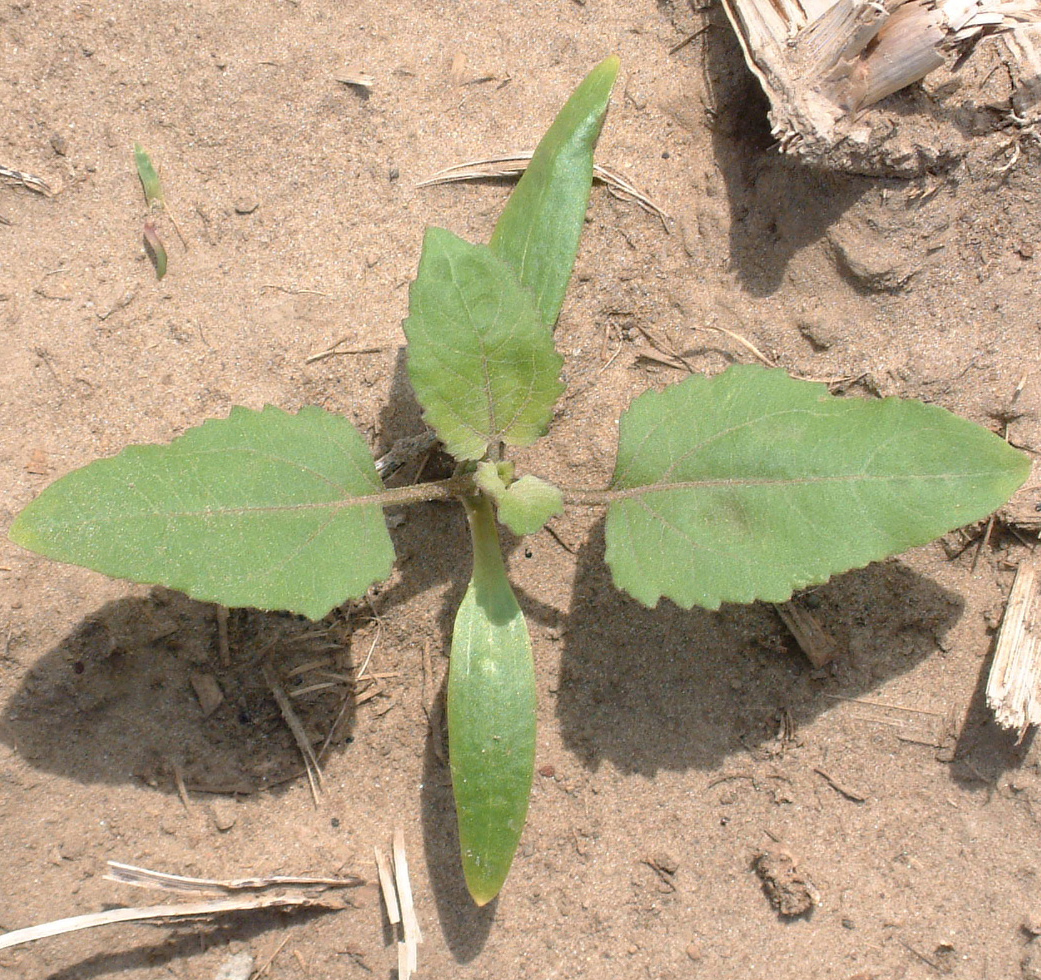
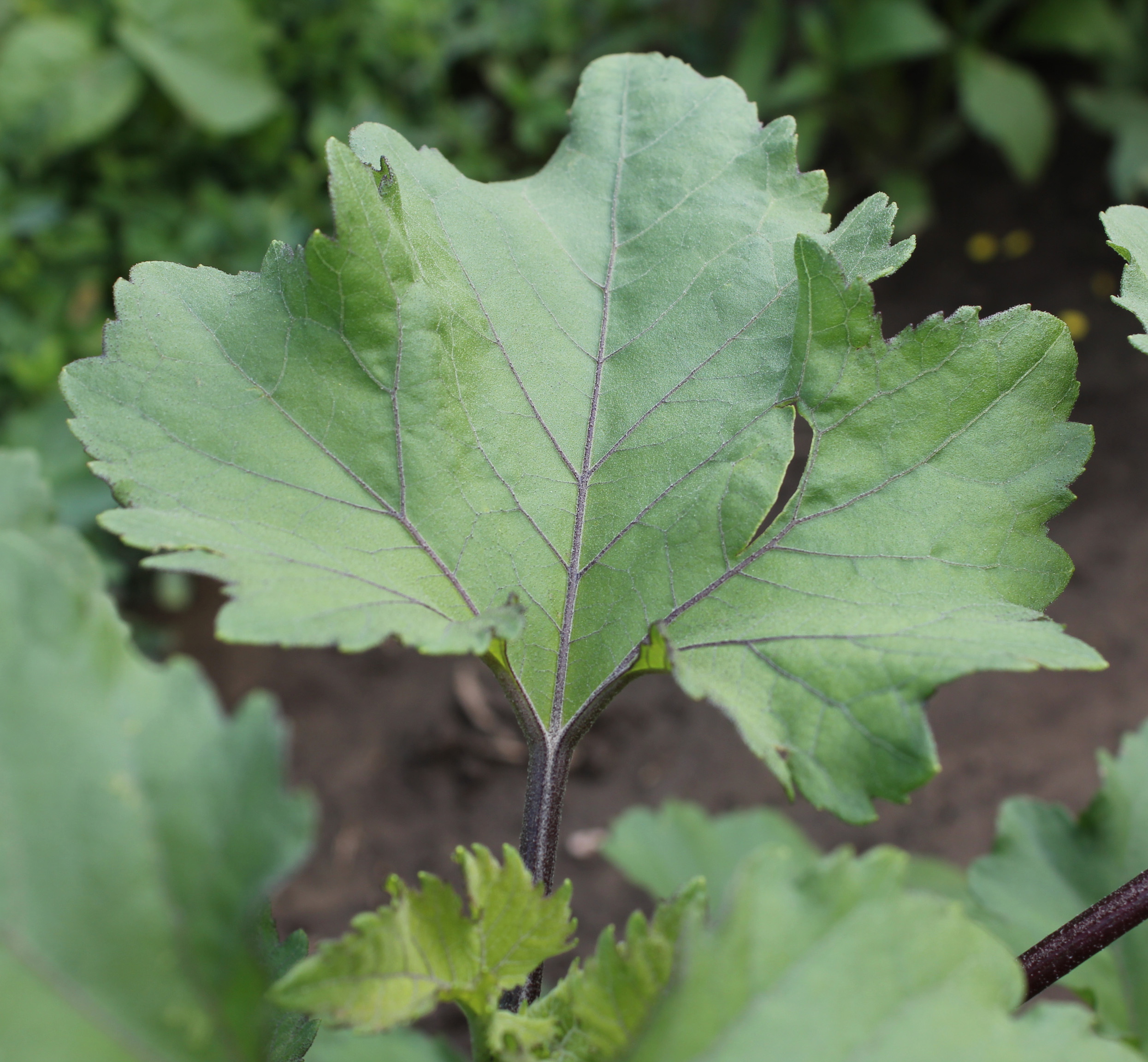
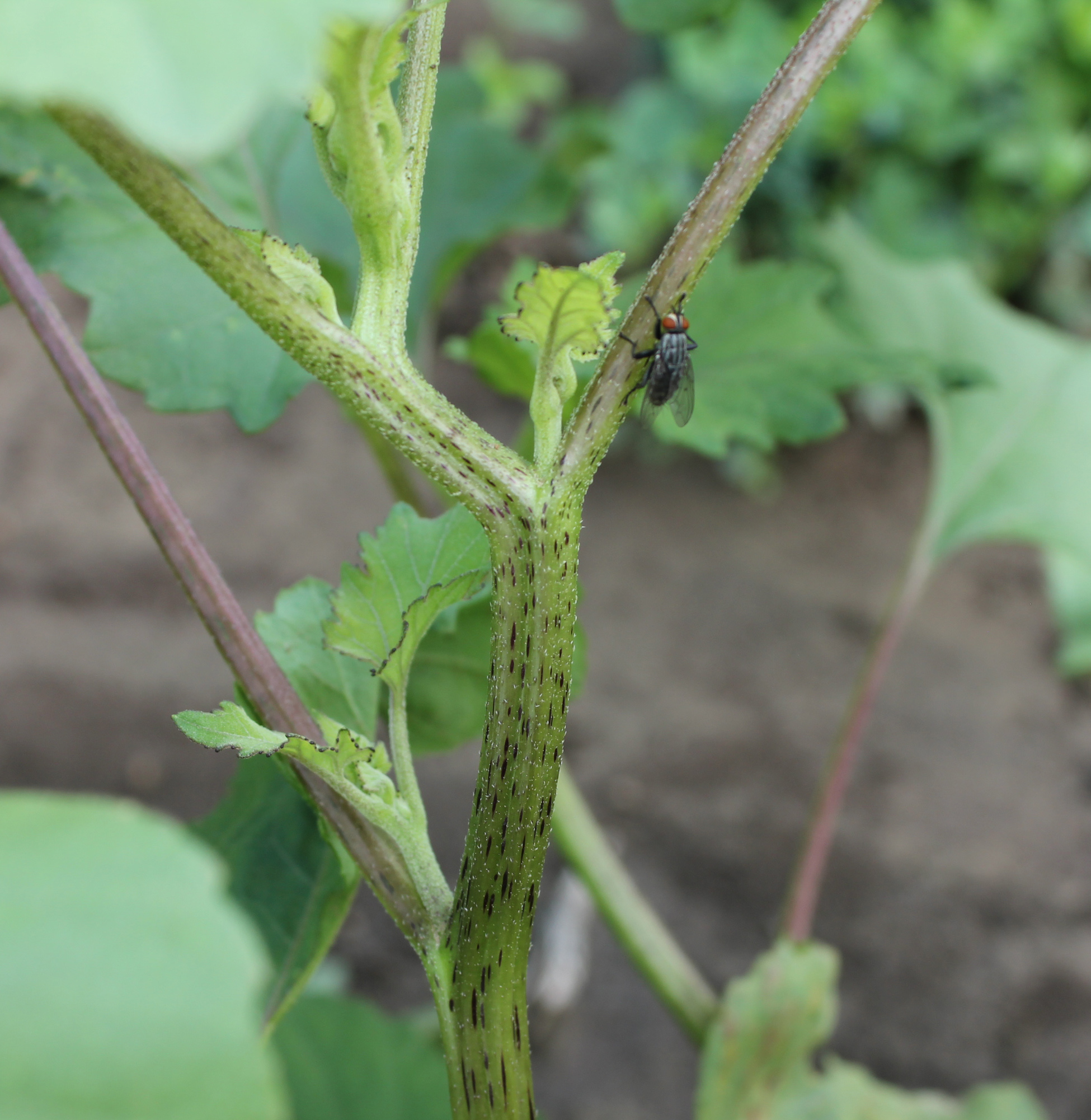
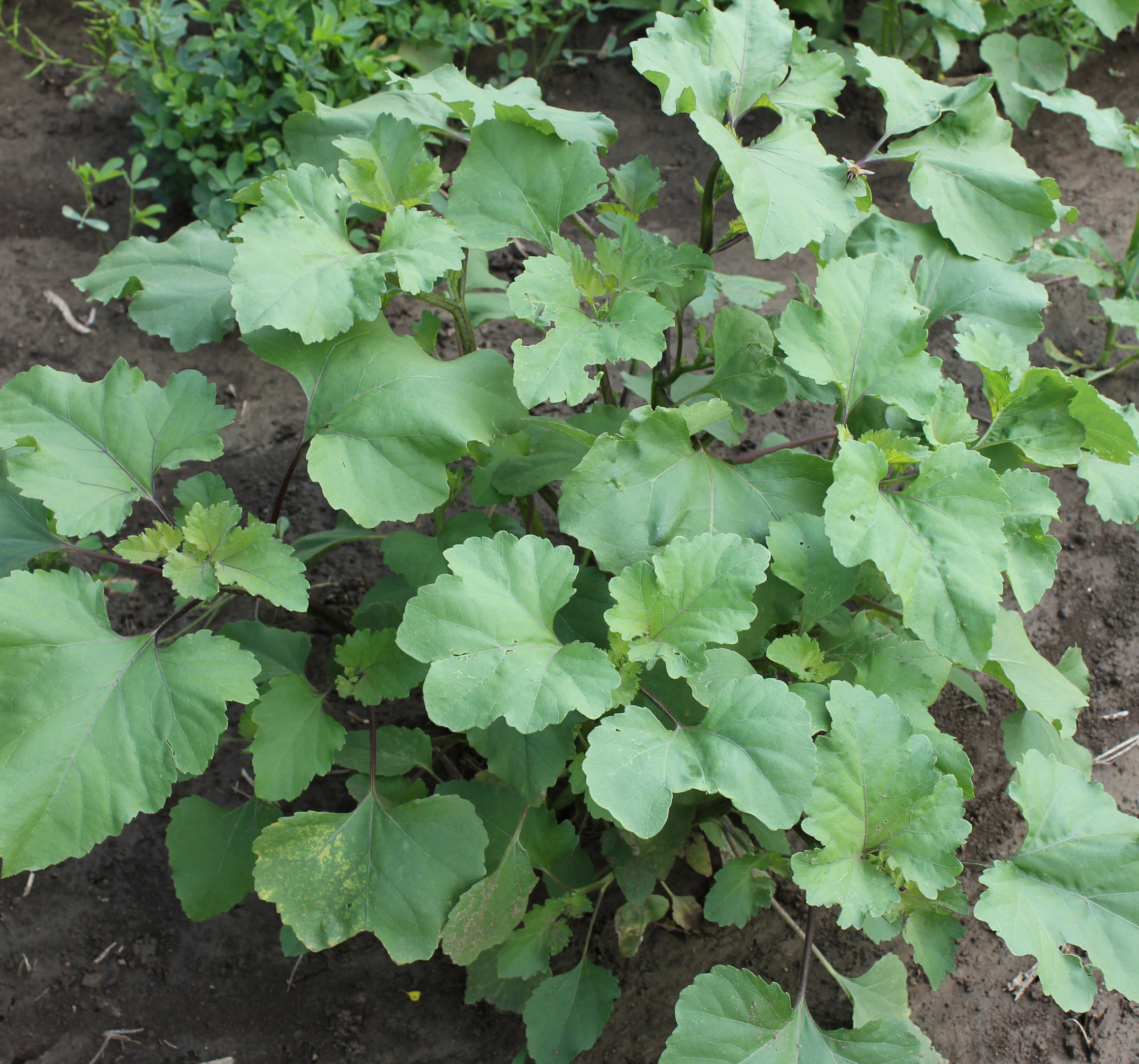
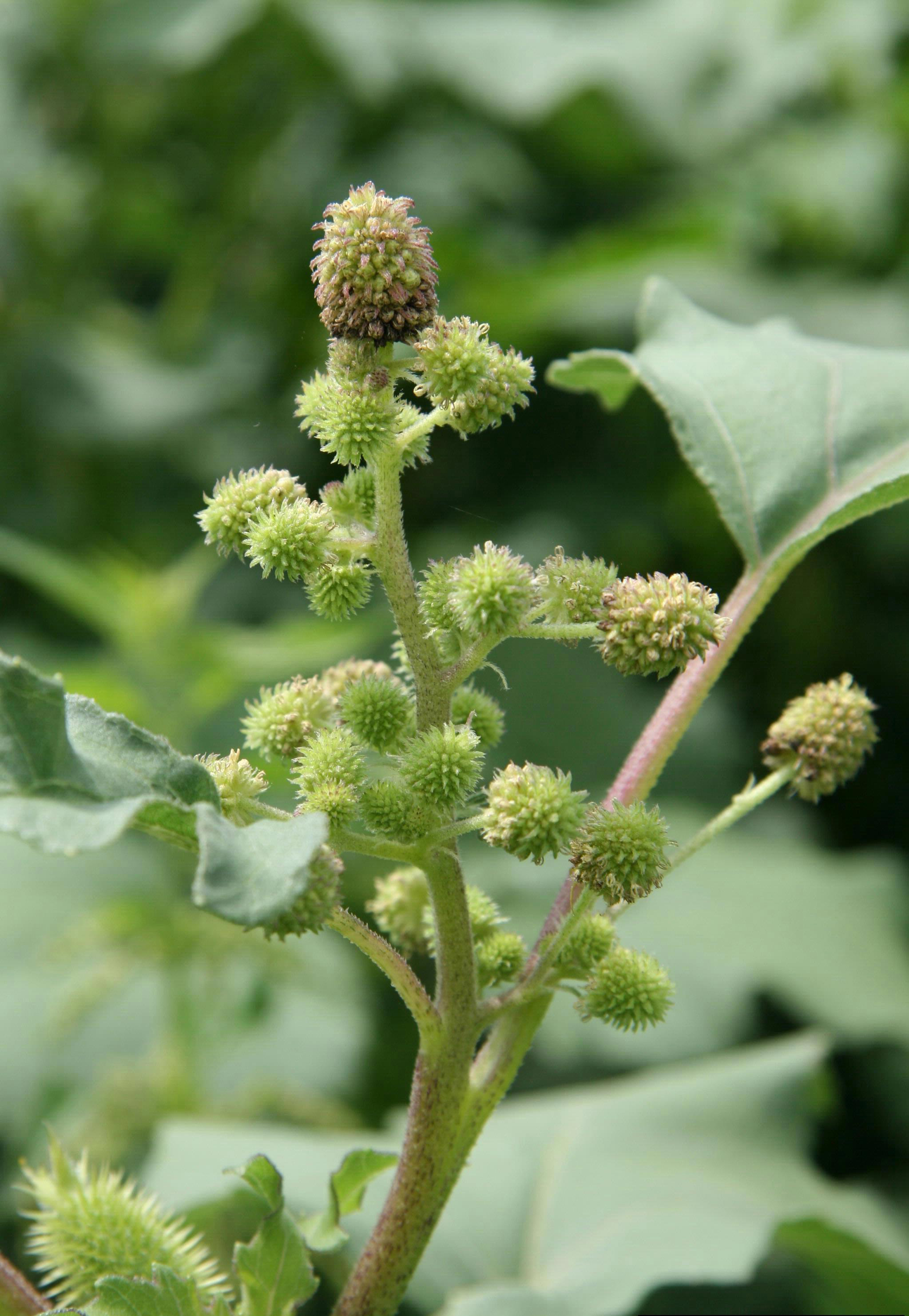
Updated: January 13, 2023
Published: January 13, 2023